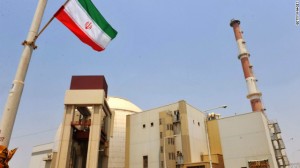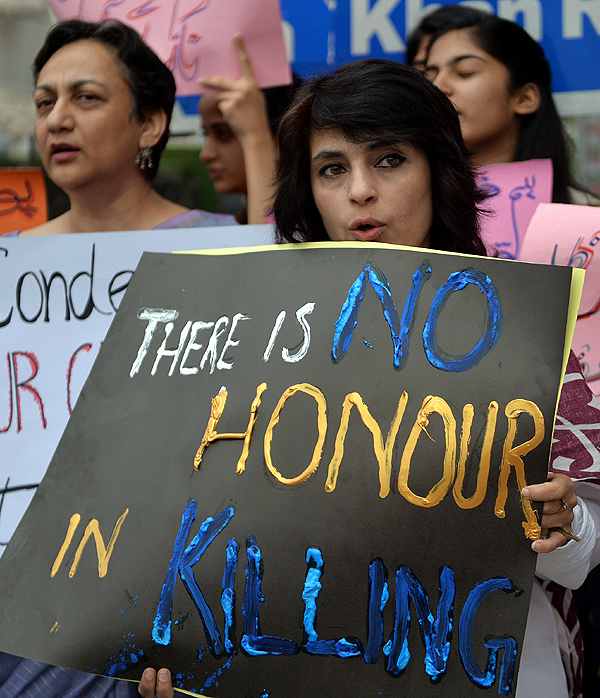Iran and the six powers meet to finalize the nuclear agreement
Thursday, May 15th, 2014 7:38:04 by Khalil Khan
The moment of truth is approaching. Two months after the deadline Iran and six major powers were given in January to resolve the nuclear dispute, negotiators are meeting this Wednesday in Vienna in order to draft the final agreement. After three previous events dedicated to building trust between the parties, face touches the essential question of what production capacity of nuclear fuel will be able to retain and for how long Tehran is limited. Iranian leaders, meanwhile, tries to disassociate negotiating its missile program.
“The hard part starts now,” admitted the chief negotiator and Iranian Foreign Minister, Mohammad Javad Zarif was quoted by Agence France Presse. According to him, the lack of consensus in just “2% of the issues discussed” could abort the expected agreement. Zarif had dinner last night with the head of European diplomacy, Catherine Ashton, who is leading the negotiations on behalf of the Six (USA, China, Russia, UK, France and Germany).
Although all participants rated the previous three meetings as “constructive “, it seems that until now has entered into the heart of the matter, the ability to enrich uranium (a process that serves for both nuclear fuel and fissile material for a pump). For the U.S. and its allies is the key to remove the possibility that Iran could gain nuclear weapons issue. Hence, try to limit both the number of centrifuges (machines that purify uranium) as the level of purity that material.
After ten years of tensions, Iran last November and the Six reached an agreement in principle to agree on measures to ensure the exclusively civilian target the Iranian nuclear program in exchange for the lifting of international sanctions to choke Tehran ‘s economy. From the beginning, the Iranians have made clear they are not willing to give up enrichment, which they consider a right under the Non-Proliferation Treaty (NPT), of which they are signatories.
” We will not accept nuclear apartheid. Our technology and our science are not part of the negotiation; we can propose that the international community is more transparency, “said Iranian President Hasan Rohani, last week.
Rohani seemed to serve the most recalcitrant in recent weeks have reinforced the criticisms against him, accusing him of being too yielding in the negotiation. Currently, the support of the supreme leader, Ali Khamenei, keeps those voices under control. But his own suspicion has again come to light when has dismissed as ” stupid ” Western expectations renounce his country ‘s missile program, anticipating any suggestions in that regard.
United States also faces similar difficulties with some members of Congress trying to impose conditions that would sabotage the agreement. The key, according to national security adviser, Susan Rice, and the head of the U.S. negotiating team, Wendy Sherman, is to ensure that Iran maintains a nuclear infrastructure to defend their leaders have not given up on producing atomic fuel, while that capacity is sufficiently limited so that the White House can overcome the objections of Congress.
However, some analysts have pointed out that rather than focusing on counting centrifuges, negotiators should achieve a robust system of inspections for a period of time as long as possible. You have until July 20 to reach a satisfactory formula for all. Although the draft agreement provides for the possibility of extending the talks six months, there is a risk of increasing political difficulties.
At the moment, last week, during a visit to Israel, Rice and Sherman admitted that Iran would maintain a certain enrichment capacity, a significant change from the initial U.S. position that reduced to zero. The Iranians, for their part, seem to have accepted changes in the heavy water reactor at Arak, since they generate plutonium has military uses. The head of the Atomic Energy Organization of Iran, Ali Akhbar Salehi said that could change it to ” produce less amounts” of that product.
Since January 20 was launched the Joint Action Plan, Iran has slowed down its nuclear program in exchange for a limited reduction of sanctions. The International Atomic Energy Agency (IAEA) confirmed in April that had been diluted to 75 % of its reserves of uranium enriched to 20 % in implementation of these commitments. However, its leaders have complained that the inertia of the sanctions system prevents access funds theoretically released.
Parallel to this process, Tehran also signed a cooperation agreement with the IAEA to clear doubts about its past nuclear activities. This allowed seven measures including access to two related uranium enrichment had refused until now to be served before May 15 sites. However, the review ended yesterday so inconclusive that the Agency considered insufficient information about their testing high-explosive detonators that are only useful to start an atomic bomb.
Although these are separate issues, they are linked. While negotiations between Iran and the Six seek to ensure the only goal of their civil nuclear program of the future, the meetings with the IAEA has been seeking rule out military dimensions in the past.
Short URL: https://www.newspakistan.pk/?p=44032

















